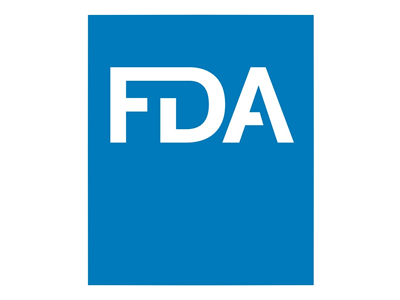FDA approves quizartinib for newly diagnosed acute myeloid leukemia

- July 21, 2023
- Drugs
On July 20, 2023, the Food and Drug Administration approved quizartinib (Vanflyta, Daiichi Sankyo, Inc.) with standard cytarabine and anthracycline induction and cytarabine consolidation, and as maintenance monotherapy following consolidation chemotherapy, for the treatment of adult patients with newly diagnosed acute myeloid leukemia (AML) that is FLT3 internal tandem duplication (ITD)-positive, as detected by an FDA-approved test.
FDA also approved LeukoStrat CDx FLT3 Mutation Assay as a companion diagnostic for Vanflyta.
View full prescribing information for Vanflyta.
Efficacy of quizartinib with chemotherapy was evaluated in QuANTUM-First (NCT02668653), a randomized, double-blind, placebo-controlled trial of 539 patients with newly diagnosed FLT3-ITD positive AML. FLT3-ITD status was determined prospectively with a clinical trial assay and verified retrospectively with the companion diagnostic LeukoStrat CDx FLT3 Mutation Assay.
Patients were randomized (1:1) to receive quizartinib (n=268) or placebo (n=271) with induction and consolidation therapy and as maintenance monotherapy according to the initial assignment. There was no re-randomization at the initiation of post-consolidation therapy. Patients who proceeded to hematopoietic stem cell transplantation (HSCT) initiated maintenance therapy after HSCT recovery.
The main efficacy outcome measure was overall survival (OS), measured from randomization date until death by any cause. The primary analysis was conducted after a minimum follow-up of 24 months after the last patient was randomized. The trial demonstrated a statistically significant improvement in OS for the quizartinib arm [hazard ratio (HR) 0.78; 95% CI: 0.62, 0.98; 2‑sided p=0.0324]. The CR rate in the quizartinib arm was 55% (95% CI: 48.7, 60.9) with a median duration of 38.6 months (95% CI: 21.9, NE), and the CR rate in those receiving placebo was 55% (95% CI: 49.2, 61.4) with a median duration of 12.4 months (95% CI: 8.8, 22.7).
Quizartinib is not indicated as maintenance monotherapy following allogeneic HSCT. Improvement in OS with quizartinib has not been demonstrated in this setting.
A boxed warning for quizartinib notes QT prolongation, torsades de pointes, and cardiac arrest. Quizartinib is available only through a restricted program under a Risk Evaluation and Mitigation Strategy (REMS), called the Vanflyta REMS. See the prescribing information for the full list of adverse reactions.
The recommended quizartinib dose is as follows:
- Induction: 35.4 mg orally once daily on Days 8-21 of “7 + 3” (cytarabine [100 or 200 mg/m2/day] on Days 1 to 7 plus daunorubicin [60 mg/m2/day] or idarubicin [12 mg/m2/day] on Days 1 to 3) and on Days 8-21 or 6-19 of an optional second induction (“7 + 3” or “5 + 2” [5 days cytarabine plus 2 days daunorubicin or idarubicin], respectively),
- b) Consolidation: 35.4 mg orally once daily on Days 6-19 of high‑dose cytarabine (1.5 to 3 g/m2 every 12 hours on Days 1, 3 and 5) for up to 4 cycles, and
- c) Maintenance: 26.5 mg orally once daily on Days 1 to 14 and 53 mg once daily, thereafter, for up to thirty-six 28-day cycles.
This review used the Assessment Aid, a voluntary submission from the applicant to facilitate the FDA’s assessment.
This application was granted priority review, fast track designation and orphan drug designation. FDA expedited programs are described in the Guidance for Industry: Expedited Programs for Serious Conditions-Drugs and Biologics.
Healthcare professionals should report all serious adverse events suspected to be associated with the use of any medicine and device to FDA’s MedWatch Reporting System or by calling 1-800-FDA-1088.
For assistance with single-patient INDs for investigational oncology products, healthcare professionals may contact OCE’s Project Facilitate at 240-402-0004 or email OncProjectFacilitate@fda.hhs.gov.

